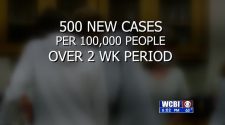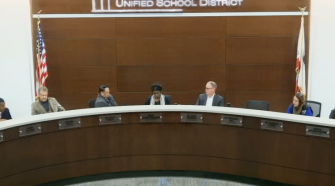RENO, Nev. (KOLO) – The Nevada Department of Health and Human Services (DHHS) is helping spread awareness and action to bring health care equity and inclusion to sexual and gender minorities in the state.
“We have to do better because they are human as well.”
“Historically, healthcare disparities have existed in serving LGBTQ+ communities so we are and have been taking steps to reduce those disparities,” Margot Chappel, Deputy Administrator with the Division of Public and Behavioral Health (DPBH) said.
The goal is to break barriers and give health care providers updated best practices that work for all patients, regardless of gender identity, race, religion, or age. The Nevada DHHS says LGBTQ+ people often have distinct health needs and can face issues that reinforce societal stressors and stigmas, even from within the health care system.
Chappel added, “It’s important that people who identify as LGBTQ+ feel comfortable seeking healthcare for all their needs, not just some. for example, a transgender man may still need a pap smear, so we want to help make that healthcare system welcoming.”
Across the department, many initiatives are at work to support LGBTQ+ health care needs.
The DPBH is working with health care facilities across the state in the rollout of the nation’s most comprehensive Cultural Competency Training, bringing a focus on equity in health care for marginalized groups.
Plus, the Division of Health Care Financing and Policy (DHCFP) expanded Nevada’s Medicaid coverage to include gender-affirming treatment of transgender patients in 2018.
The Office of Vital Records has also streamlined the process for amending gender marker birth certificates and offers a third gender marker, Gender X, for those that don’t align as strictly male or female.
“We must be able to focus on their needs and how we can be able to get healthcare services that are culturally competent to them,” Brooke Maylath, Health Facilities Inspector with the DPBH said.
Nevada is one of the first states to begin collecting Sexual Orientation and Gender Identity (SOGI) data as part of COVID-19 contact tracing, to better understand the impact of the pandemic on the LGBTQ+ community.
“That support is really, really important because it’s something that has been missing for decades.”
These efforts are just the beginning to ensure that everyone receives the care they need and deserve.
Maylath added, “We have a lot of work ahead of us, we know what we need to do, and we’re committed to the process.”
National LGBT Health Awareness Week, this year from March 22-26, is coordinated by the National Coalition for LGBT Health.
Copyright 2021 KOLO. All rights reserved.














